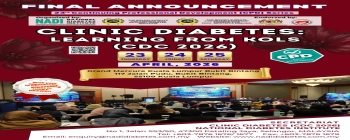
Overview:
What happens when the prefrontal lobe and frontal cortex are compromised due to faulty brain wiring and sensory traffic jams, such as seen in autism spectrum disorders, attention deficit disorders, anxiety disorders, mood disturbances, behavior disorders, post-traumatic disorders, poverty, attachment disorders?
This webinar will address strategies that meet the needs of those children and adolescents who are impacted by these differences in their brain maturation. The purpose is to provide practical tools for those clinicians, educators, therapists or parents who are directly involved in working with children and adolescents.
This webinar is designed for those professionals who are "working in the trenches." Many of the strategies are applicable for adults as well who continue to struggle with executive function disorders.
What every participant will find out is that even though Kathy is focusing on more severe executive function breakdowns such as manifested by disabilities, poverty, dysfunctional environments these strategies will work with all of their students or clients because executive functioning is not fully mature in the adult brains until 21-22 years old (females) and 28-30 years old (males) However, there may be administrators, social workers, university professors, therapists, state and national service center consultants who may want to share the information with their clients and audiences.
Why should you Attend: Children and adolescents who struggle with executive function disorders often look like those who just aren't paying attention, have difficulty making transitions or are purposely not controlling themselves. They may be unaware of the connections of their behavior and the consequences of the behavior.
Their desks, backpacks, closets and everything around them is disorganized and they may have an inability to plan ahead. If you don't have self-regulation, you may act out, get placed in timeout, sent to the principal's office then miss important academic learning time. A downward spiral occurs as the student gets more upset and continues to act out when given punitive consequences.
Executive functioning changes radically over the first few years, continues to improve throughout adolescent years and, finally, during early adulthood years, the frontal lobes and prefrontal lobes are activated and connected to other regions of the brain. Executive function skills can be trained. It's just like going to the gym. The more one practices these strategies for metacognition and self-regulation, the neural connections will be strengthened.
Drawing on 45 years of experience and research based strategies, Kathy will lead the viewer with many practical strategies to help support metacognitive and self-regulation needs thereby strengthening and training executive function skills. Many videos demonstrating the examples will be presented to help support and demonstrate the strategies.
Areas Covered in the Session:
- Why executive functions are so important
- Strategies for Goal Setting, Organizing, Planning, Task Initiation, Executive Attention, Set Shifting, Emotional Regulation
Who Will Benefit:
- Teachers (General Education and Special Education)
- Parents of Teens
- Social Workers
- Counselors
- Administrators
- Speech Therapists
- Occupational Therapists
Kathy Kaluza Morris has been a special educator for 45 years, serving as a speech therapist, self-contained teacher of students with behavior disorders, moderate to severe developmental disabilities as well as a resource teacher and first grade teacher.
She served as a diagnostician and supervisor in a district where she opened up the first two LIFE Skills programs in the state of Texas before becoming a consultant for autism, behavior and inclusion at a region service center in Texas. Starting her own business, igivuWings, in 1999 she provides seminars nationally and internationally. She served on the President's Commission on Special Education, was Teacher of the Year and recently, she and her husband were honored by the ARC of Texas with the Lifetime Achievement Award Serving Persons with Disabilities.








